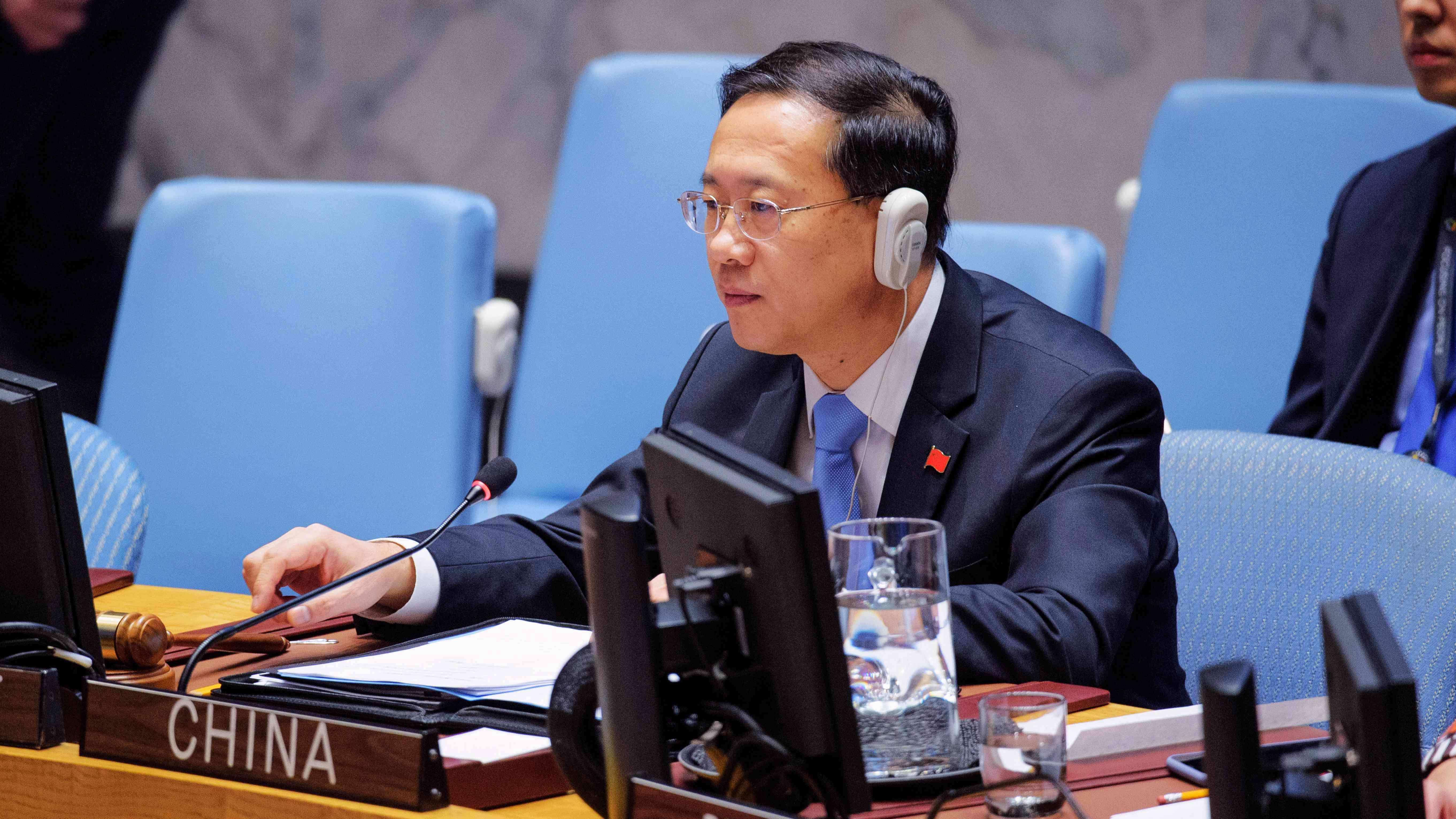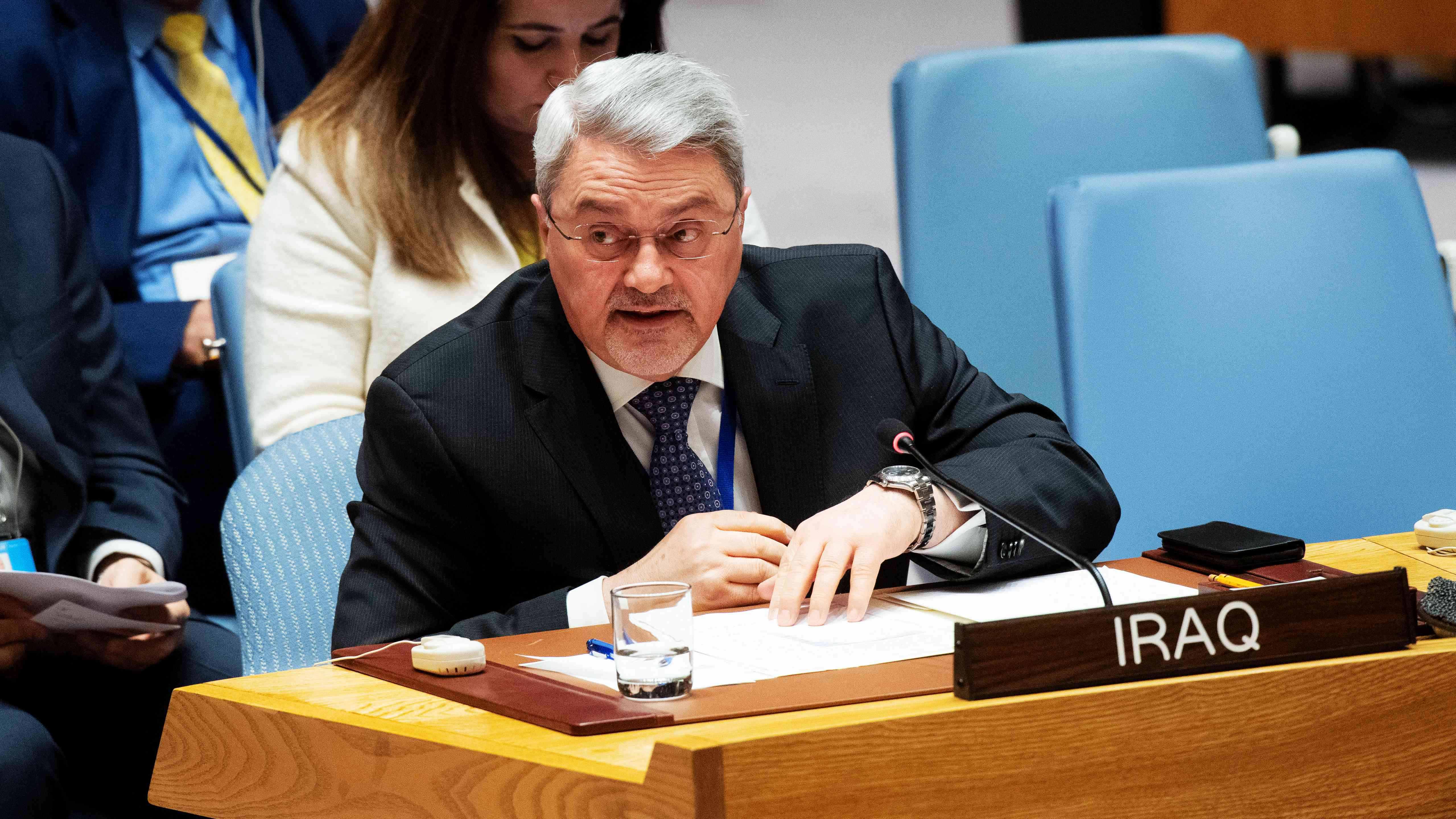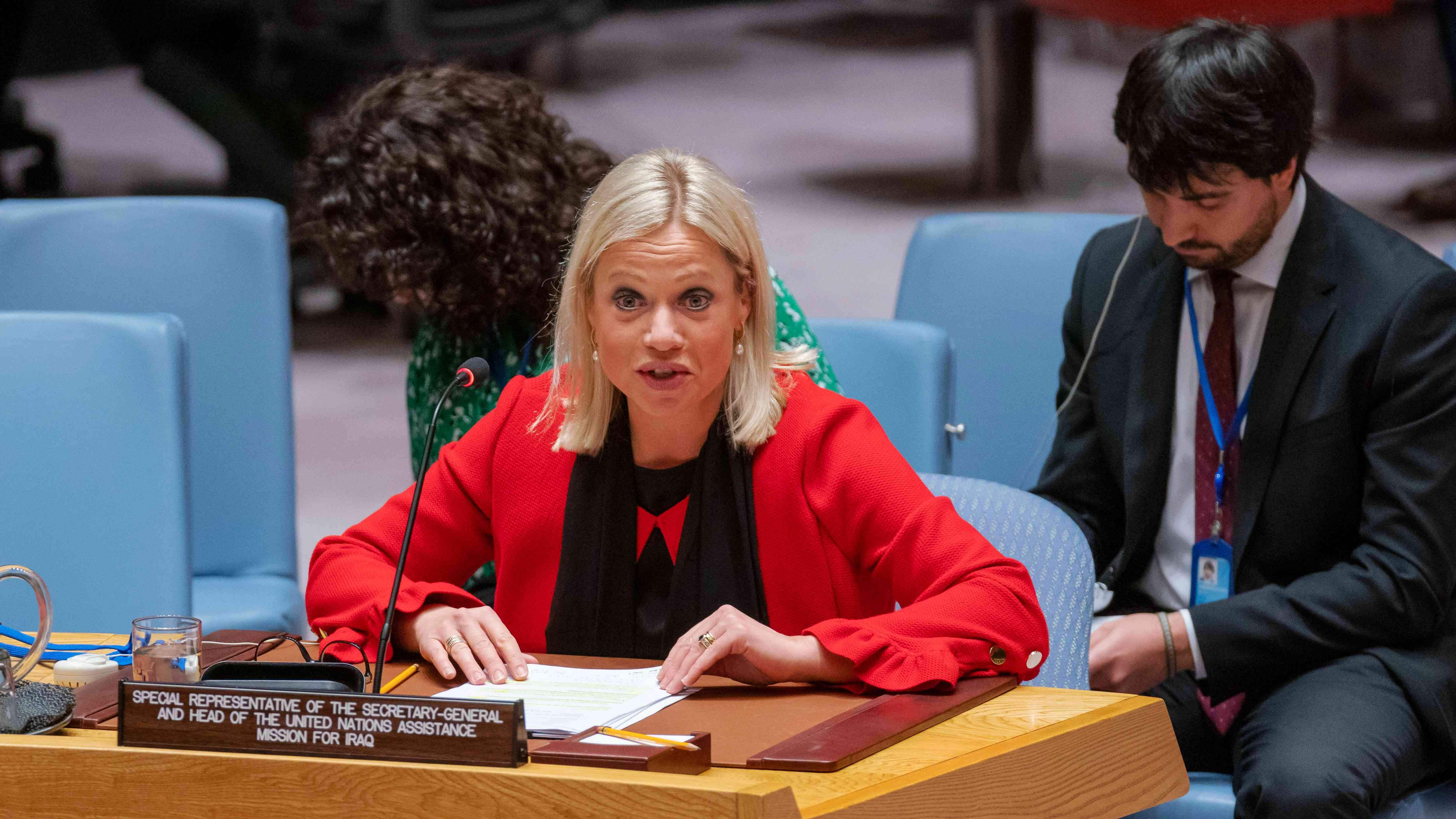
Middle East
15:54, 14-Feb-2019
China calls for political settlement in Iraq at UNSC meeting
By Abhishek G Bhaya

China on Wednesday reiterated its call for a political settlement in Iraq while urging the international community to support the war-ravaged country's fight against terrorism and contribute towards its economic recovery as the United Nations Security Council (UNSC) held a crucial meeting on the situation in Iraq amid a lingering political stalemate over government formation.
"We should continue to adhere to the general direction of political settlement to the Iraq issue," Ma Zhaoxu, China's permanent representative to the UN, said at the meeting, adding that “achieving inclusive reconciliation and harmonious coexistence among the Iraqi parties is in line with the fundamental interests and the development needs of all Iraqi people."
Iraq has been facing a political deadlock for months due to unresolved differences between various political factions. While a consensual nominee – Adil Abdul-Mahdi was sworn in as the country's new prime minister with a partial Cabinet on October 25 – he has struggled ever since to fill in the remaining four Cabinet positions, including the key portfolios of interior, defense and justice due to the impasse.
Iraq's UN representative Mohammed Hussein Bahr Aluloom said his country's different political blocs are currently working to overcome obstacles to form a government. Iraq has set up a development plan for the next several years to reduce rates of poverty and unemployment in line with the 2030 Agenda for Sustainable Development.

Mohammed Hussein Bahr Aluloom, Iraq's Permanent Representative to the United Nations, addresses the UN Security Council at the UN headquarters in New York, U.S., February 13, 2019. /UN Photo
Mohammed Hussein Bahr Aluloom, Iraq's Permanent Representative to the United Nations, addresses the UN Security Council at the UN headquarters in New York, U.S., February 13, 2019. /UN Photo
The Chinese envoy praised the Iraqi leadership for their continued efforts towards ending the political stalemate and noted that the country is “at a critical stage in promoting peace, stability and reconstruction.”
China welcomes the progress in government formation in Iraq and commends the efforts by leaders of Iraq to resolve differences through consultations and dialogue, continuously promoting economic development, improving people's living standards and accelerating the reconstruction process, said Ma.
"China will, as always, support any efforts that help the political settlement process in Iraq and fight against terrorism, actively participate in the reconstruction of Iraq, of Iraqi economy, and will continue to provide assistance within our means," he stressed, calling on the international community to "support the good offices of the UN" and provide constructive assistance for an inclusive political settlement in Iraq.
Expressing “great concern“ over the delay in finalizing the Cabinet, the top UN envoy for Iraq called on political actors in Iraq to overcome infighting and allow compromise to prevail in the interest of the Iraqi people.
“The slow completion of the Iraqi government is undoubtedly a great concern,” Jeanine Hennis-Plasschaert, the UN Secretary-General's Special Representative for Iraq and Head of United Nations Assistance Mission for Iraq (UNAMI), told the UNSC in her first regular briefing in the new role. She took charge earlier this year from Jan Kubis.
“To make things worse, the Iraqi Parliament is in a one-month recess and will only reconvene in early March,” she said.

Jeanine Hennis-Plasschaert, UN Secretary-General's Special Representative for Iraq and Head of the United Nations Assistance Mission for Iraq (UNAMI), briefs the UN Security Council on the situation concerning Iraq, at the UN headquarters in New York, U.S., on February 13, 2019. /UN Photo
Jeanine Hennis-Plasschaert, UN Secretary-General's Special Representative for Iraq and Head of the United Nations Assistance Mission for Iraq (UNAMI), briefs the UN Security Council on the situation concerning Iraq, at the UN headquarters in New York, U.S., on February 13, 2019. /UN Photo
“Ultimately, the people of Iraq are bearing the brunt of the political stalemate, at a time when it is critical to address their needs and demands for better services and to address reconstruction, justice, corruption, unemployment as well as economic and social development,” Hennis-Plasschaert remarked.
“It is high time for Iraqi leaders to shift focus from factional politics, and to invest efforts in addressing the immediate needs of the Iraqi citizens as further delays could give space to significant repercussions on the stability of the country," she said.
Making her appeal to Iraqi politicians, who are mostly males, the UN envoy pointed out that there are experienced Iraqi women well-qualified for jobs in government.
Ma, meanwhile, also urged the international community to respect Iraq's sovereignty and territorial integrity and continue to help the war-ravaged country's fight against terrorism.
"We should continue to support Iraq in its fight against terrorism," said Ma, noting that "the threats posed by terrorist remnants remain."
"All parties concerned should strengthen counter-terrorism cooperation, unify standards, crack down on all terrorist organizations listed by the Security Council, consolidate the achievements of counter-terrorism efforts, and resolutely curb the return and spread of terrorist forces and terrorist activities," Ma added.
“The international community should also support Iraq in bringing terrorists to justice in accordance with relevant domestic laws,” he concluded.
(Cover: Ma Zhaoxu, China's Permanent Representative to the United Nations and President of the UN Security Council for the month of November, chairs the Security Council meeting on the situation in the Middle East. /UN Photo)
11001km

SITEMAP
Copyright © 2018 CGTN. Beijing ICP prepared NO.16065310-3
Copyright © 2018 CGTN. Beijing ICP prepared NO.16065310-3